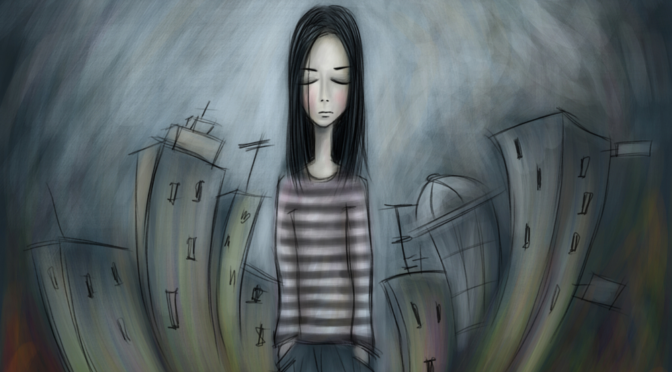Depression, or Major Depressive Disorder, is the number one cause of disability in the world for people aged 5 years or older. Approximately 1 in 8 children suffer from depression in the United States, and a total of about 14.8 million American adults have been diagnosed with the disorder. That’s a lot of people, and the number is frighteningly high when you consider depression is the main contributor to suicide, which claims more than a million lives per year.
Depression takes the most basic things we find joy in, and hides them away behind the shadows of sadness. Sleep, energy, focus, memory, and even libido are stolen from us. The loss of these simple necessities can destroy a person’s desire to love, play, work, and most notably, their will to live.
In a recent TED Talk, Stephen Ilardi said, “Depression lights up the pain circuitry of the brain- to such an extent that it’s torment, it’s agony, it’s torture. And many begin to look to death, as a welcome means of escape.”
Ilardi, author of The Depression Cure, explains further to help us to understand what depression really is, what is really causing it, and how to make it really disappear.
Similar to our flight-or-flight response, the brain has what Ilardi refers to as a “runaway stress response.” He believes depression to be the result of prolonged exposure to this specific response. See, when our ancestors were faced with vicious predators or life-threatening dangers, the fight-or-flight response evolved to assist them with these situations. When the fight-or-flight response was answered with a feeling of safety, or security, the brain and body reverted to a state of reduced-stress. This reversion could only take place after the runaway stress response triggered intense physical activity, which could last for a few seconds or a few hours.
“The problem is for many people throughout the Western world, the stress response goes on for weeks, months and even years at a time, and when it does that, it’s incredibly toxic to the body and the brain,” Ilardi said.
The conditions in which we live today are extremely stressful, and this contributes to society’s rapid decline in health. Modern-day life disrupts our brain’s helpful chemicals, like dopamine and serotonin, which can cause sleep deprivation, brain damage, inhibited immune response, and inflammation. This finding led Ilardi to another fascinating discovery: “Depression is a disease of civilization.”
Just like diabetes, cancer, allergies, and asthma, depression is considered a disease of civilization. Have you ever wondered why these diseases are so pervasive nowadays but were unheard of within indigenous cultures and tribes? It’s because we weren’t meant to live our lives like this- flooding our stress-receptors with trivialities while consuming poisoned food after a long work-day behind a computer screen.
As an example, Ilardi mentions research on the Kaluli people of the New Guinea. An anthropologist named Edward Schieffelin interviewed over 2,000 Kaluli and was surprised to discover that only one of those 2,000 showed symptoms of clinical depression. This was shocking information for Schieffelin, since the Kaluli face daily tribulations and horrors like high rates of infant mortality, parasitic infection, and violent death, yet they do not display or experience depression. Why is that?
Ilardi says the answer is because the Kaluli still follow the hunter-gatherer tendencies that helped shape humanity, while the dynamics of Western culture have instead shaped a “lifestyle of disease.”
99.9% of the human and pre-human experience has been lived in a hunter-gatherer context. “Most of the selection pressures that have sculpted and shaped our genomes are really well adapted for that environment and that lifestyle,”  said Ilardi.
said Ilardi.
The industrial revolution began 200 years ago, and in that time, American and Western culture removed themselves from everything that came before them. All of the habits and ways of life that contributed to our very genetic makeup were replaced with something completely foreign to us.
And yes, we adapted our schedules and struggles to this new lifestyle, but our brains simply have not had enough time to alter their chemical constitution from the hunter-gatherer ways.
As Ilardi perfectly explains, “We were never designed for the sedentary, indoor, socially isolated, fast-food laden, sleep-deprived, frenzied pace of modern life.”
So, if this is where we are after 200 years of advancement, and this advancement has brought about a change in lifestyle, and this change in lifestyle has brought about such an epidemic like depression, what will our next progression as humans brings us? We keep looking for ways to advance ourselves, our culture, and our lives when really, the best thing for us is to revert.
Learn self-sustainability, grow our own food, use solar energy, and spend some time outside. If we truly want to change our lives, we need to start with how we live.
I highly recommend you watch Stephen Ilardi’s TED Talk below and hear what he has to say about the depression epidemic, as well as his 6-step program to cure it.
By Raven Fon

